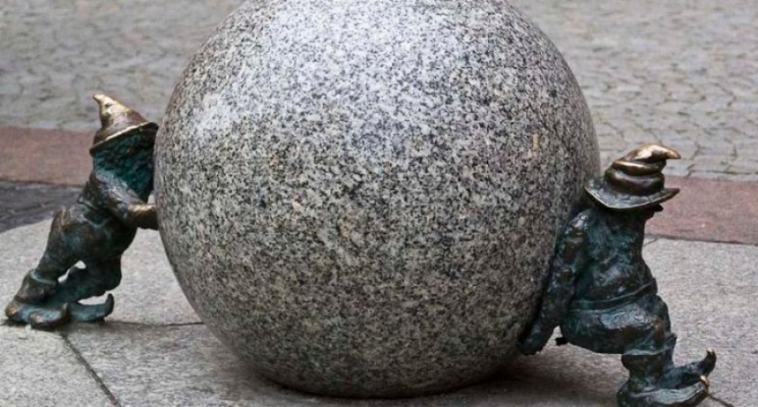
FIVE CLUES YOU’VE BEEN LUCKY TO FIND YOURSELF A GOOD CLIENT
In the dog-eat-dog world of communications, it sometimes happens that your worst enemy is not a competing agency, but rather... your own client. Over the years, I've heard and seen so many cases in which, instead of working together, as a strong team, client and agency were at odds, trying to get the one up over one another. Recent events got me thinking about the topic again and this is how I came up with the 5 things I appreciate the most in our best clients.
- He trusts your expertise
Oftentimes, in order to end up working with a new client, you need to go through a long and arduous selection process. It starts with the client researching the market, making a short list, drafting a brief, you offering a complex solution to this brief, forwarding credentials and recommendations, at least 2 face-to-face meetings... As an agency, especially when pitching to a big multinational, you end up offering so much information to the potential client that all that’s really missing is the maiden name of your mother and your favorite TV series (although the latter may crop up into the conversation more often than you’d think). Finally, after a process that can take up to 6 months, you’re finally selected! This is when you might think that “ok, now the client is convinced you know your stuff and we can get on with it”. But, sometimes, you’d be wrong to think this… because it is not always the case.
You know, me, when I hire a plumber, I expect him to do the job and don’t tend to get in his way. Yet, when it comes to PR… hiring an expert does not mean that the client actually trusts that expert to carry out her responsibilities. If you have a client that, after all of the process described above, still needs convincing as to why he can rely on you… it’s time to truly consider if this is actually a client you want.
- He does not avoid your emails and calls
How many times have you had to push projects by weeks or months even because you can’t get a reply? Sometimes, it takes all of 5 emails and 20 phone calls to finally get a yes or no answer to one question. Which may be ok unless you’re trying to be responsive and work with a journalist, on a piece, in his deadline.
We never imagine that anyone could and would answer instantaneously, which is why we have long learned to schedule plenty of time for the response to come. Nevertheless, a client who understands the importance of the work we do will always at least try to get back to us. Even just to say “sorry, I cannot be available until this time”.
- He communicates with you
I once had a client who asked me why I had not communicated something he had never told me he was doing in his company. When I said that he had never told me about it, he went on to explain that if I had looked on his (personal) Facebook page six months previous, there was a post about it. Well… while I do believe that research is important and I make it a priority to know as much as I can about the client and his industry from outside, public sources, nothing beats having an honest communication that goes both ways. As an external agency, I cannot know all the things you do internally, whereas you, as a client, need to understand that not everything is important for the outside world. It’s a constant trade-off, but it all comes down to something very mundane – simply talking to one another.
- He is honest in his feedback
Some years back, I was doing an assessment on a teammate, so I met with a client to get their feedback. And it was terrible. I sat through an hour of hearing the client complain about the person, saying how the texts were bad, how they asked for one thing and got another… just a nightmare. But something was not adding up in my mind. So I calmly let them finish the story and then asked if they had given this feedback to my teammate and if anything has improved thereafter. Five seconds of silence later, the client half-heartedly says “mmm…yes” and pretty much changed the topic. Now something was really not adding up, so I went back to the office and asked to see all the correspondence with the client. Surprise: there was no bad feedback in sight, just a series of “thank you”s and “just what I needed” and happy smiley faces.
The truth ended up being somewhere in the middle, of course, but the main problem was that, because the client thought my teammate was a nice person, they did not feel up to the task of expressing their discontent. And while it is true that my teammate had made her share of mistakes, it would have been impossible for her to correct something she never knew was wrong. This is why, whenever you can, ask for feedback and try to get it face to face, to truly understand whether the client’s heart is also where his words are.
- He shows his appreciation
It is not often that clients will say thank you. Many of them still think that, because they pay you and you are just doing your job, there is no need for politeness. If you find that one client who appreciates the work you do for him and also shows it – hold tight! :)
Author: Ena Karabelas, Executive Director at Chapter 4 Romania
